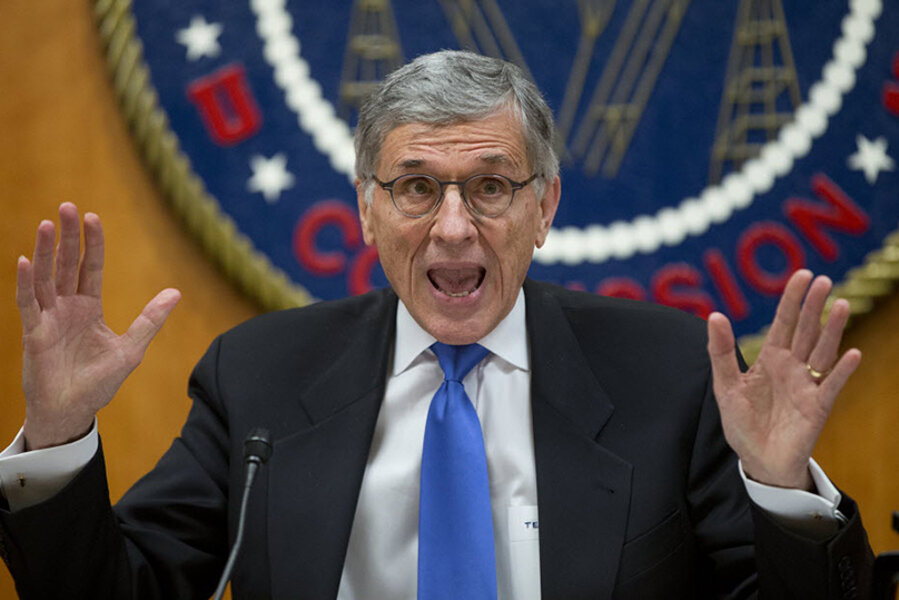Net neutrality – the idea that Internet providers should not be able to favor, block, or slow down certain websites in favor of others – has a long history. Federal regulators and advocates have long grappled with how to regulate Internet traffic, with an early effort coming from former Federal Communications Chairman Michael Powell, who introduced a set of “four freedoms” for the Internet in a 2004 speech.
But the FCC appeared to gain the most traction for its regulations, which were finally approved in February 2015, through a single segment of comedian John Oliver’s HBO show “Last Week Tonight,” which quickly went viral when it aired in June 2014, racking up hundreds of thousands of views online and briefly leading to a shut down of the FCC's commenting system.
Describing net neutrality as "boring even by CSPAN standards,” Mr. Oliver instead framed the issue of collaboration between the FCC and the cable companies it is tasked with regulating through the lens of righteous indignation familiar to viewers of his former home, “The Daily Show.”
"The guy who used to run the cable industry’s lobbying arm is now running the agency tasked with regulating it,” Oliver said, referring to Tom Wheeler, the FCC’s chairman. “That is the equivalent of needing a babysitter and hiring a dingo."
He turned an Internet-focused segment back on the Internet itself, noting that the FCC was currently taking comments on its proposed regulations.
"I would like to address the Internet commenters out there directly,” he said during the segment. "Good evening, monsters. This may be the moment you’ve spent your whole lives training for... We need you to get out there and, for once in your life, focus your indiscriminate rage in a useful direction. Seize your moment, my lovely trolls, turn on caps lock, and fly my pretties! Fly! Fly!"
The FCC has arguably never been quite as stiff as Oliver made it seem. (Ajit Pai, one of two Republican commissioners who opposed the net neutrality regulations, turned a 2015 meeting to approve a cap on high rates charged to prison inmates for phone calls into a one-man protest about contraband cellphones smuggled into prisons using drones and “dead cats.”)
E-mails obtained through an open-records request showed the agency taking the segment fully in stride, with some employees describing it as "Priceless!!!" and noting that "we had a good laugh about it. The cable companies... not so much."
“I think that it represents the high level of interest that exists in the topic in the country, and that's good,” Mr. Wheeler said during the agency’s meeting in June 2014, adding, "I would like to state for the record that I'm not a dingo."
The segment was often singled out for its impact, receiving praise from lobbyists and policymakers who said Oliver’s explanation seemed to have a more immediate impact than many longer-term advocacy campaigns in raising public consciousness about the once-obscure issue.







